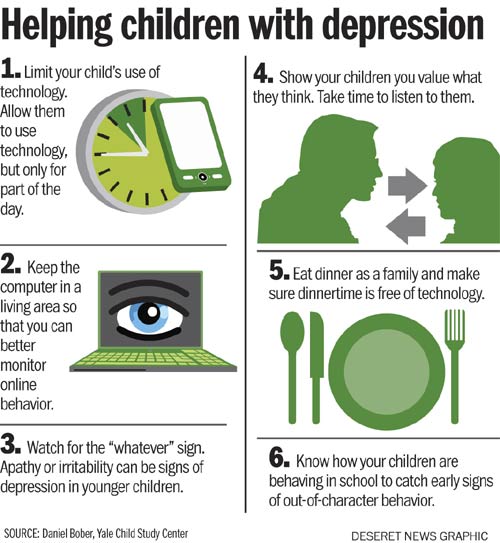
A recent study from the Public Library of Science showed a correlation between Internet use and thoughts of suicide. Researchers surveyed adults from the age of 20-49 about their use of the Internet to engage in conversations with anonymous users about suicide.
The participants were also asked how often they had used the Internet to browse for methods of self-harm or suicide.
"Mental health consultation via the Internet was not useful, but those who did so showed worsened depression/anxiety," researchers concluded.
Mary, who struggled with depression, anxiety and eating disorders during her adolescent years, said she started using MySpace and then branched out from there seeking community and camaraderie.
Mary, who also agreed to an interview on the condition she remain anonymous, said the online communities self-perpetuated her problems. She would cut herself and she developed eating disorders, cycling from anorexia to bulimia and purging. The websites and blogs made her feel validated and in the short-term helped her cope with feelings she did not know how to control.
"But ultimately it was damaging,” she said.
Darrell Sampson, educational specialist in school counseling services for the central office for public schools in Fairfax County, Virginia, said the Internet is a “double-edged sword” because it can provide adolescents an outlet to cry out for help, but also provides platforms, such as anonymous blogs, where students continue dangerous behavior in communities.
“The electronic world has opened up a whole new trigger for the mental health community,” said Michelle Seliner, chief operating officer of S.A.F.E. Alternatives, an organization that teaches adolescents how to express and tolerate their emotions.
She said online forums allow adolescents to act more impulsively and create anonymity, making them feel less responsible for their actions.
Seliner said she spends time working with adolescents to educate them on the importance of responsible electronic use. “We encourage them to choose healthy Internet behaviors,” she said.
FEAR OF STIGMA
Denial and fear of being seen as "crazy" prevented Mary and Sarah from seeking help from professionals or family and friends. But they did not feel ashamed or afraid of their actions when online and felt comfortable opening up to anonymous strangers who were not going to judge their behavior.
“There were so many years I didn’t seek help because I didn’t want to be sent to the ‘crazy house,’ ” said Sarah. “Whenever you see someone go into a psych ward, you feel like they are going to jail or rehab. I thought anyone who found out about my depression would send me away.”
Janis Whitlock, director of the Cornell Research Program on Self-Injury and Recovery, said the presence of negative stigmas makes the shame many self-harmers feel more intense. “A lot of people who self-harm are emotionally perceptive. They already are ashamed of feeling out of control.”
“Stigma is definitely something I have faced,” said Sarah. “A lot of times when I tell someone I’m on medication, they will say ‘yeah, I felt depressed once, but I learned to get over it.’ I don’t think some people get there is a chemical imbalance."
Breaking down mental health stigmas is complicated by the wide range of symptoms and behaviors. Some depressed students develop severe insomnia and are unable to sleep while others cannot force themselves to get out of bed and face the day, said Sampson.
Bober said there is still a widespread opinion that mental health is a character defect, indicating a perceived weakness instead of a health issue. He said this causes guilt and shame in adolescents, only exacerbating their problems. Educating parents and children about symptoms and treatments can help them see depression and mental health are not flaws in character, but treatable diseases.
THE ROAD TO RECOVERY
Sarah said after seeking professional help, she became more aware of how inadequate Internet communities are. She now understands how to find alternatives to seeking help online and is replacing old habits with new, healthy outlets for her feelings.
 |
"Having a doctor who I can call and talk to anytime really helps," she said.
“We need to pay more attention to transitions in children’s lives, making sure kids feel connected to home, teachers and extracurricular activities," said Sampson, adding that transitions such as middle school, high school and college are times when children are easily overwhelmed by their emotions and may feel as though they have nowhere to turn.
Sampson said depression is not only a teen and adolescent problem. He said college can trigger depressive feelings, especially if not treated earlier in life. "These problems don't just go away. Usually the longer they drag on, the worse they become," he said.
Whitlock said the best thing parents can do when they discover their child is depressed or engaging in self-harm is to remain emotionally stable. She said it is helpful when parents calmly ask kids questions because it indicates genuine interest and a willingness to hear what their children have to say. When children are able to talk to their parents and those close to them, they are less likely to rely on Internet strangers as an outlet for their emotions.
“Depression is a daily struggle and always will be. But recovery is real. I want to finish school and have a family. Seeing how far I have come gives me hope for a better future,” said Mary. “If I could talk to someone who self-harms or is thinking of suicide, I would say, ‘there is a way out. You can escape depression.’ ”
But it won't be found surfing the Internet.
Comment by clicking here.



 Contact The Editor
Contact The Editor
 Articles By This Author
Articles By This Author